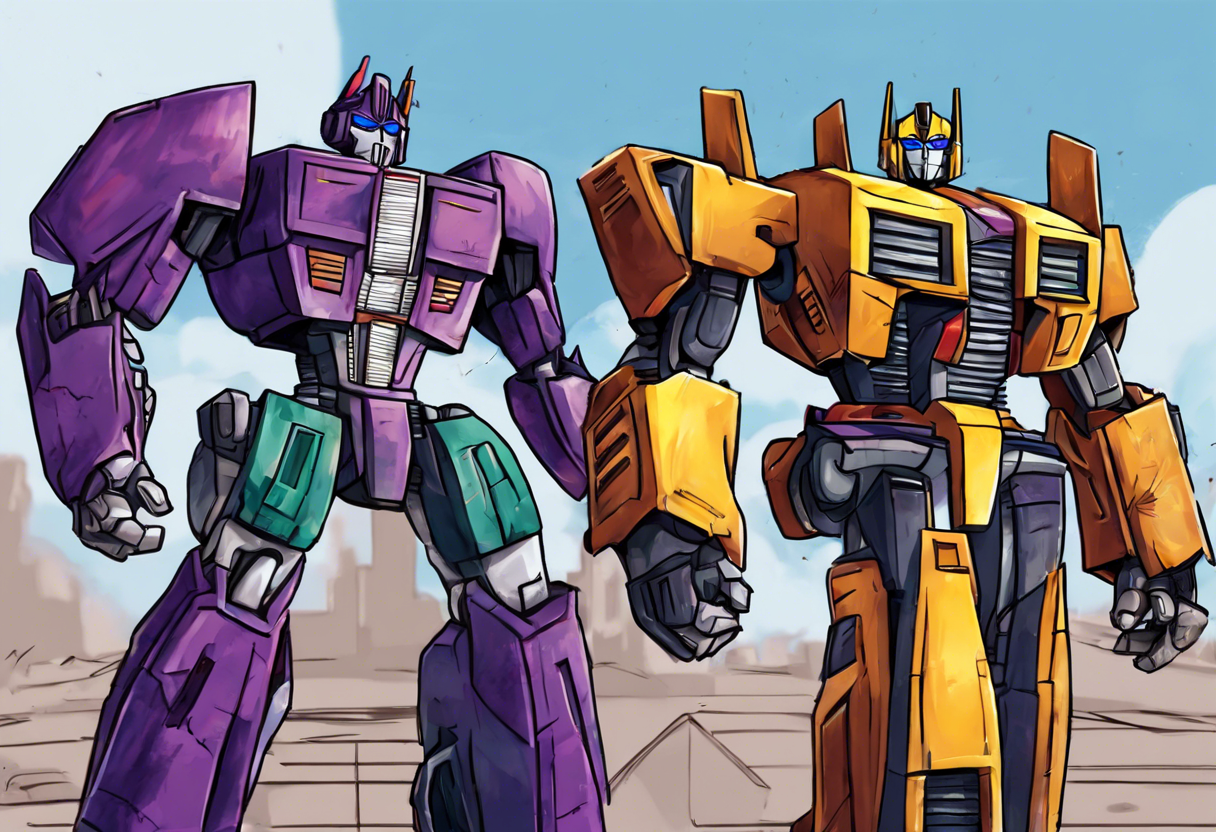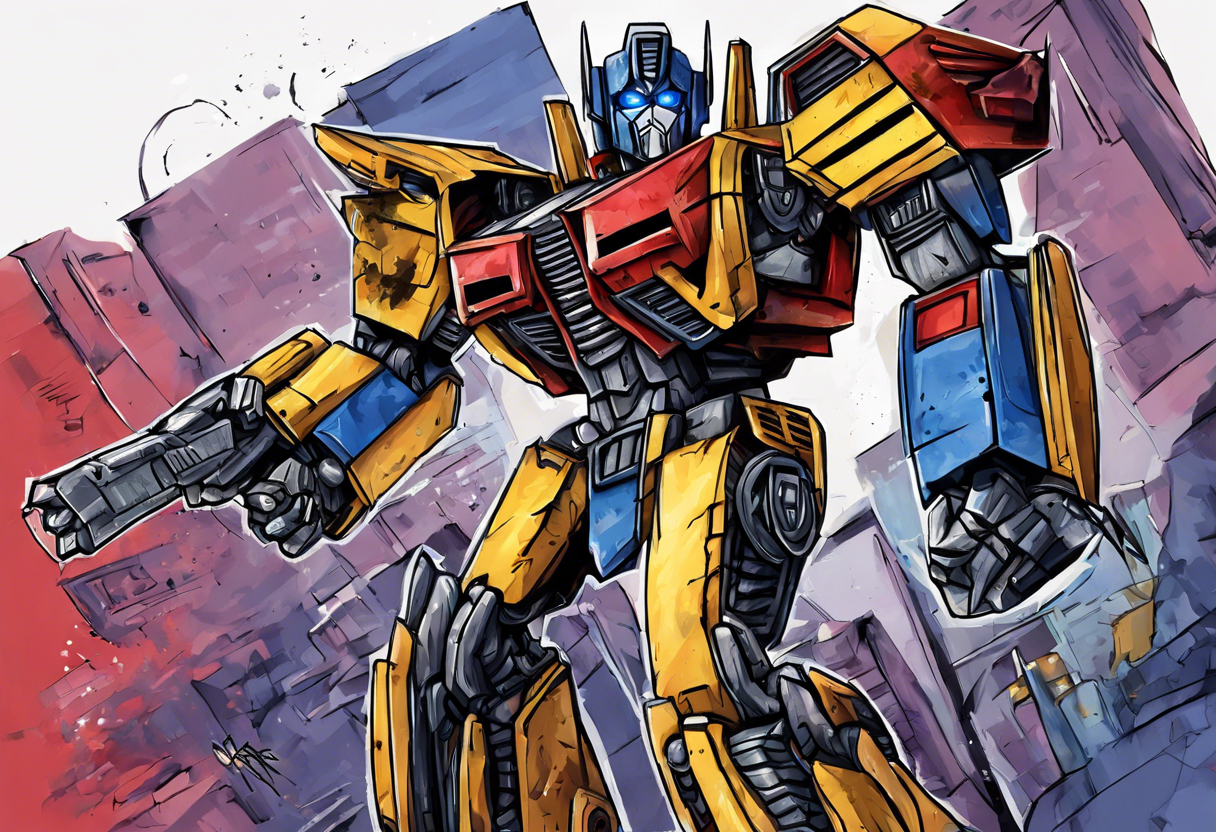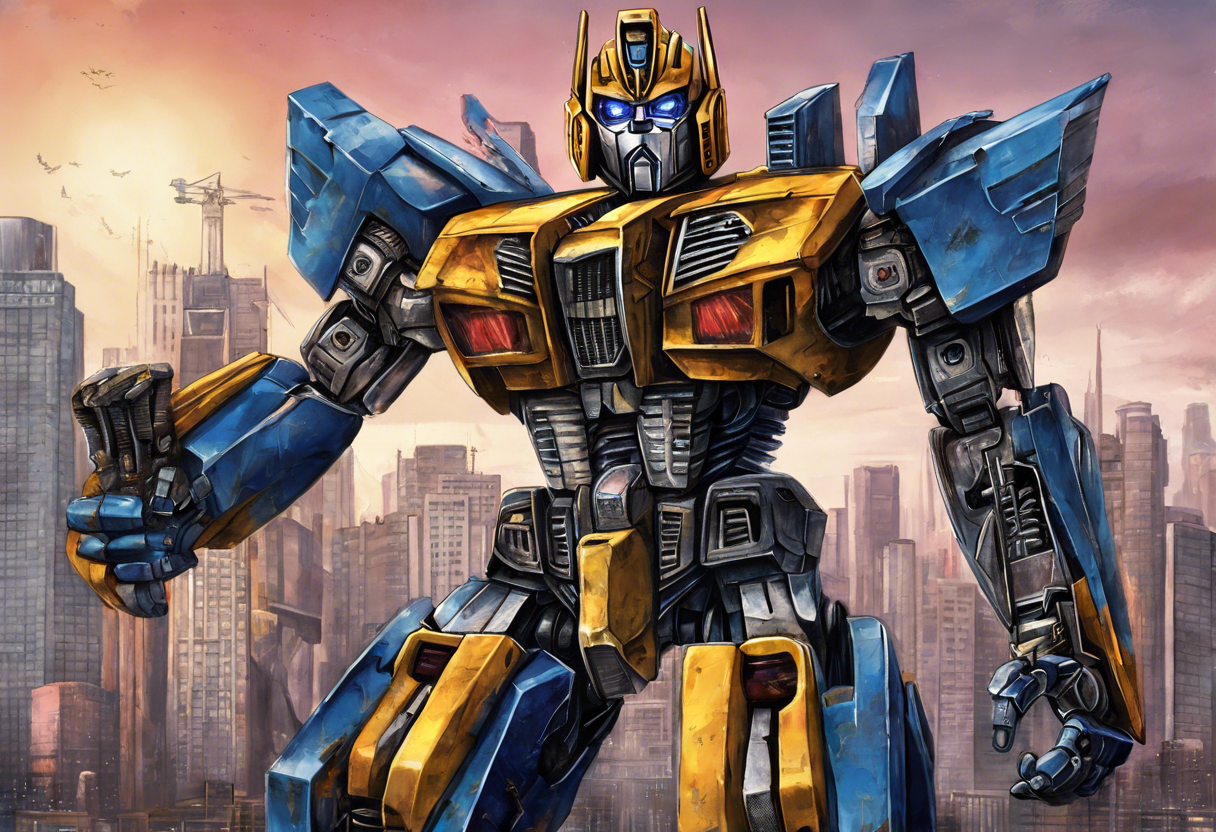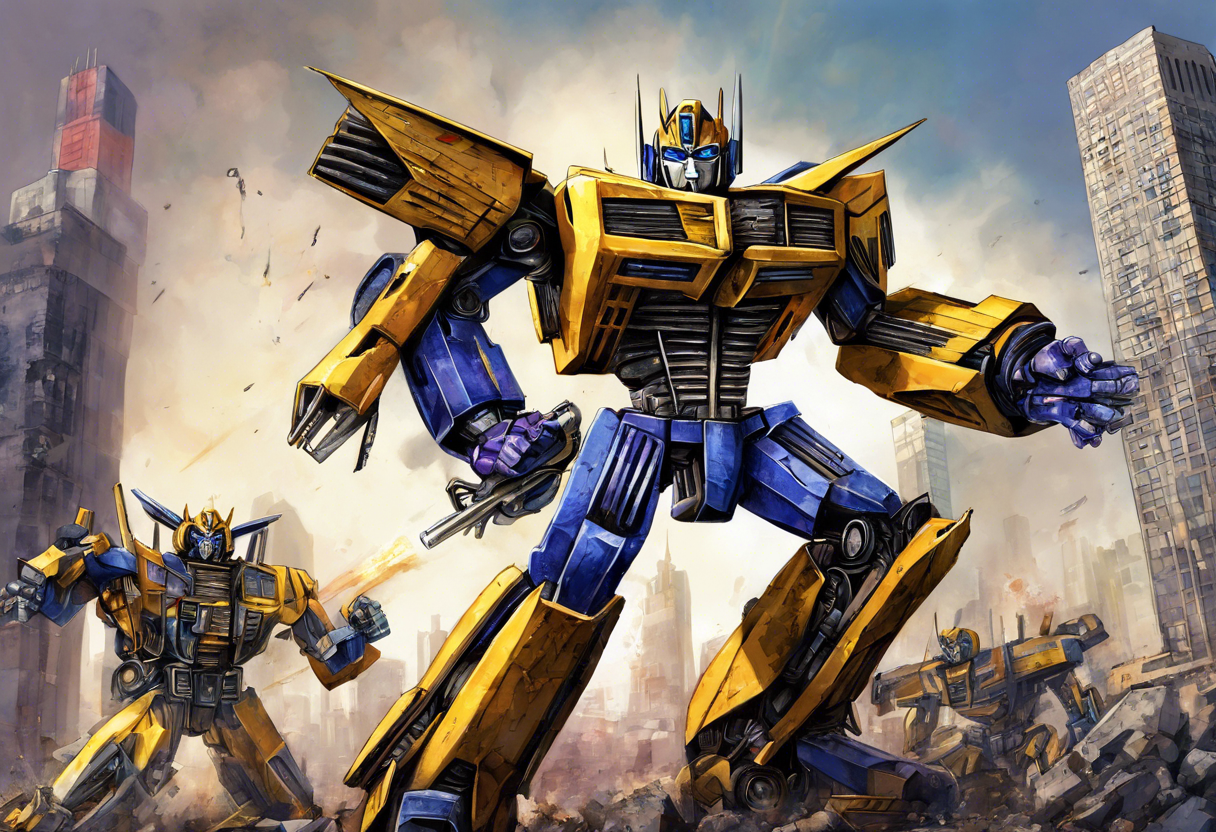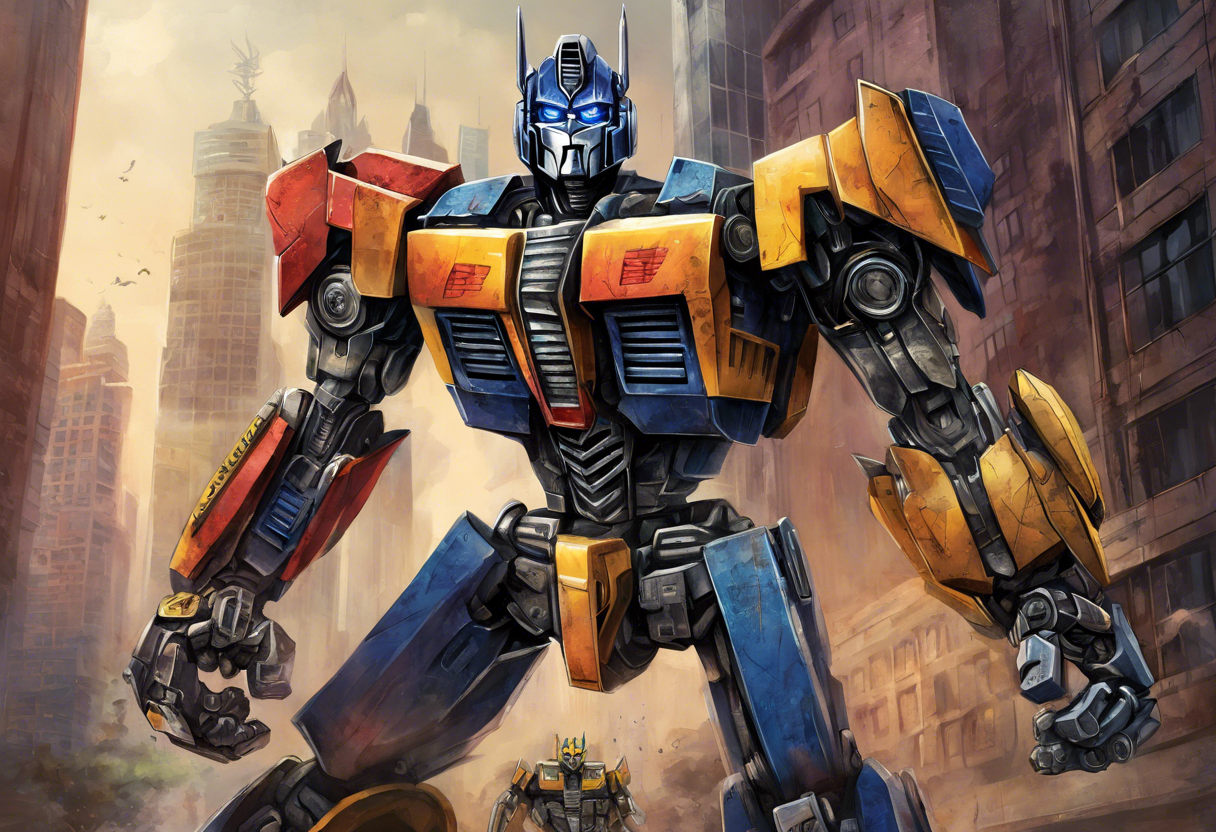Introduction
The 2007 film Transformers, directed by Michael Bay, is a landmark science fiction action movie based on Hasbro’s iconic toy line of the same name. This film marked a significant transition of the Transformers franchise from its origins in toys and animated series to a live-action cinematic experience.
Produced by Don Murphy, Tom DeSanto, and Lorenzo di Bonaventura, and written by Roberto Orci and Alex Kurtzman, Transformers brought together a talented cast, including Shia LaBeouf, Tyrese Gibson, Josh Duhamel, Megan Fox, and Jon Voight. The film also featured the voice talents of Peter Cullen as Optimus Prime and Hugo Weaving as Megatron, adding depth and authenticity to the characters.
Transformers premiered on June 10, 2007, at the N Seoul Tower in Seoul and was released in the United States on July 3, 2007, by Paramount Pictures. The film’s success was immediate, grossing $709.7 million worldwide and becoming the fifth-highest-grossing film of 2007 [1].
What sets Transformers apart within its genre is its blend of high-octane action sequences, cutting-edge visual effects, and a narrative that balances human characters with the fantastical world of shape-shifting alien robots. This combination helped to revitalize the Transformers franchise and appeal to a broad audience.
Plot Summary
The plot of Transformers revolves around the civil war on the planet Cybertron between the Autobots, led by Optimus Prime, and the Decepticons, led by Megatron, over the AllSpark, a powerful artifact that is the source of all Cybertronian life.
The story begins with Megatron crash-landing on Earth in the Arctic Circle in the 19th century. Captain Archibald Witwicky discovers Megatron and accidentally activates his navigational system, which imprints the coordinates of the AllSpark’s location on his eyeglasses. These glasses later become crucial in the modern-day storyline.
In the present day, teenager Sam Witwicky (Shia LaBeouf) buys his first car, which turns out to be Bumblebee, an Autobot disguised as a 1976 Chevrolet Camaro. As Sam gets caught up in the conflict between the Autobots and Decepticons, he teams up with Mikaela Banes (Megan Fox) and the Autobots to prevent the Decepticons from using the AllSpark to conquer the universe.
The Autobots, including Optimus Prime, Jazz, Ironhide, and Ratchet, arrive on Earth and take on forms of Earth vehicles. They must navigate human society while battling the Decepticons, who are determined to use the AllSpark to give life to Earth’s machines and rebuild their army.
The climax of the film involves a intense battle in Mission City, where Sam and the Autobots face off against the Decepticons. The film concludes with Sam ramming the AllSpark into Megatron’s chest, killing him and destroying the AllSpark, thus saving Earth from the Decepticon threat [1].
Themes and Symbolism
Transformers explores several central themes and symbolic elements that enrich its storytelling. One of the most prominent themes is the struggle between good and evil, embodied by the Autobots and Decepticons, respectively. The Autobots represent selflessness, sacrifice, and the protection of life, while the Decepticons symbolize selfishness, destruction, and chaos.
The AllSpark serves as a symbol of life and creation, highlighting the importance of preserving and respecting life. The film also delves into the theme of transformation, not just in the literal sense of the robots changing forms, but also in the personal growth of characters like Sam Witwicky, who transforms from an ordinary teenager to a hero involved in an intergalactic conflict.
Michael Bay’s use of light and imagery is another significant aspect of the film’s symbolism. Light is often used to convey power, prowess, and sustenance, and Bay’s cinematography frequently features dramatic lighting to emphasize these elements [3].
Cultural Impact
Transformers had a significant cultural impact upon its release. The film’s success helped to revitalize the Transformers franchise, introducing the characters to a new generation of fans. The movie’s blend of action, science fiction, and humor made it a staple of summer blockbusters.
The film’s influence on popular culture is evident in its numerous references and parodies in other media. Transformers also spawned a successful film series, with multiple sequels, including Revenge of the Fallen, Dark of the Moon, Age of Extinction, and The Last Knight.
The film’s impact extends beyond the screen as well. It has inspired various merchandise, from toys and video games to clothing and other consumer products. The franchise’s iconic characters, such as Optimus Prime and Bumblebee, have become cultural icons, symbolizing heroism and loyalty.
Critical Reception
Transformers received mixed reviews from critics at the time of its release. While the film was praised for its action sequences, visual effects, and sound design, it was criticized for its character development and excessive product placement.
Despite the mixed critical reception, the film was a commercial success and was well-received by audiences. It won four awards from the Visual Effects Society and was nominated for several Academy Awards, including Best Sound Editing, Best Sound Mixing, and Best Visual Effects [1].
Over the years, opinions on the film have varied, with some critics reevaluating it as a quintessential example of Michael Bay’s filmmaking style, which emphasizes spectacle and action over nuanced storytelling.
Legacy
Transformers has left a lasting legacy in the world of cinema and popular culture. It marked a new era for the Transformers franchise, transitioning it from a beloved toy line and animated series to a live-action film franchise.
The film’s influence on action and science fiction movies is evident, with many subsequent films drawing inspiration from its visual effects, action sequences, and storytelling approach. The franchise continues to inspire filmmakers, artists, and audiences alike, with new adaptations and interpretations emerging regularly.
The success of Transformers also paved the way for other toy and cartoon franchises to be adapted into live-action films, demonstrating the potential for these properties to be reimagined for the big screen.
In conclusion, Transformers is a film that has made a significant impact on both the cinematic landscape and popular culture. Its blend of action, science fiction, and memorable characters has ensured its enduring relevance, making it a staple of modern blockbuster filmmaking.

